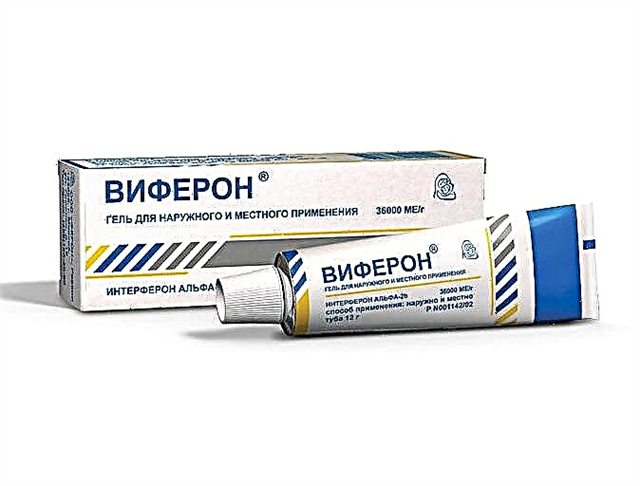
Vasoconstrictor drugs, which include "Rinostop", have shown themselves well in the treatment of various types of rhinitis. They help to quickly get rid of congestion, reduce the abundance of nasal discharge and ease the condition with ARVI. However, while waiting for a child, the use of many drugs requires increased caution. And if a woman previously often saved herself with "Rinostop" for rhinitis, then after a positive test it is not worth resorting to such a medication without a doctor's prescription.

Features of the drug
The drug is released in the form of nasal drops with a concentration of 0.05% and 0.1%, as well as in the form of a nasal spray with the same percentage of active substance. Drops are sold in 10 ml bottles, equipped with a dropper, sprays - in plastic bottles of 15 ml.
Their main ingredient is xylometazoline, and among the auxiliary substances are benzalkonium chloride, sodium hydrogen phosphate, sodium chloride and some other compounds. All types of Rinostop are available without a prescription and stored at room temperature. The shelf life of the drops is 3 years, the spray is 2 years.

Operating principle
After entering the nasal cavity, xylometazoline provokes a narrowing of the vessels located in the mucous membrane. This leads to a decrease in redness and swelling, as well as to restore the patency of the nasal passages. The absorption of the active substance occurs in a very low concentration, therefore the action of "Rinostop" is called mainly local.

Is it allowed during pregnancy?
The waiting period for the child is included in the list of contraindications to all forms of "Rinostop", so it is best for pregnant women to refrain from treatment with such a drug. However, in some cases, doctors still prescribe drops or spray for women in position, assessing all the risks and prescribing a special regimen. This usually occurs in the 2nd trimester, when the harm from the effect of drugs on the fetus is considered minimal.
If a runny nose and nasal congestion bothers a woman for a period of 14-27 weeks, the doctor may prescribe Rinostop to the patient, taking into account the clinical picture, possible contraindications and other factors. It is impossible to use the drug in the second trimester without the appointment of a specialist. In the 1st trimester, treatment with "Rinostop" should be abandoned, since this is the most important stage in the development of the embryo, during which all the main organs are formed. And the effect of any drugs on the fetus in the early stages is undesirable. In the event of a runny nose, a woman should use safer means, for example, preparations based on saline or sea water.
In the third trimester, the use of "Rinostop" is also limited. Although in the later stages the child's development is almost complete and only the improvement of his organ systems is taking place, the use of vasoconstrictor drugs is not recommended.


For the treatment of a runny nose at the end of pregnancy, it is better to use analogues that are completely harmless to the fetus and the state of the uterus, which the doctor observing the woman will write out.
When is it prescribed for expectant mothers?
The main reason for using Rinostop is a runny nose, which most often develops under the influence of infectious agents, but it also happens of an allergic nature. During pregnancy, such a symptom is not uncommon, because the defenses of women in the position weaken, and resistance to viruses, allergens or bacteria decreases. Rinostop can also be prescribed to expectant mothers with sinusitis or otitis media.

Contraindications
Apart from the waiting period for the child, treatment with "Rinostop" is not recommended for many diseases or disorders in the patient's body. Spray and drops are contraindicated in case of hypersensitivity to any of their ingredients, as well as tachycardia, increased thyroid activity or glaucoma. In addition, these drugs are not prescribed for women with high blood pressure and in cases where rhinitis is atrophic. The presence of diabetes mellitus in a pregnant woman is also a limitation for the use of Rinostop.


Side effects
Some women react to the spray or nasal drops with unpleasant local symptoms. These include sneezing, burning, profuse mucus production, nasal swelling, dry mucous membranes, or tingling sensations. In some patients, Rinostop can cause an increase in blood pressure, headache, arrhythmias, insomnia, vomiting and other serious disorders.

If they occur, the medicine is immediately canceled.
Instructions for use
To reduce the risk of harmful effects, a woman in a position should use Rinostop in strict accordance with the doctor's instructions. Exceeding the dosage or continuing treatment beyond the prescribed period is dangerous, therefore it is unacceptable to change the scheme prescribed by the doctor on your own. Usually, expectant mothers are advised to drip a 0.05% drug (baby drops), a single dose is 1-2 drops in each nostril. Wherein maximum frequency of injections - 3 times a day, and the duration of therapy is traditionally no more than 3 days.
However, in each case, the doctor's prescriptions may differ. If a pregnant woman was prescribed a spray, then one injection into each nasal passage is a single dose. It is permissible to spray this form of medicine no more than 3 times during the day.

For some women, the treatment is extended up to 5 days, but longer than this period, the use of "Rinostop" is prohibited.
Reviews
Women who had to use "Rinostop" in the 2nd trimester for no longer than 3 days, speak about it mostly positively. The tool is called convenient to use, affordable and quite effective. Side effects, according to the patients, rarely appear if the treatment prescribed by the doctor is followed. In this case, the congestion quickly disappears, and breathing is easier for a long period.

Analogs
Buying at the Rinostop pharmacy, you can see on sale a drug called Rinostop Extra. This is also a vasoconstrictor drug in the form of drops and a nasal spray, but it has a completely different active substance - oxymetazoline. Such drugs are not recommended for pregnant women, therefore, they cannot be used as an analogue of the usual Rinostop. If the expectant mother is worried about a severe runny nose, the doctor may prescribe one of these remedies.
- "Pinosol". Such nasal drops contain several active substances, including eucalyptus oil, alpha-tocopherol, thymol and other ingredients that have antiseptic and anti-inflammatory properties. The medication can be used during pregnancy at any time if there are indications for such treatment, for example, acute rhinitis. It is also available as a nasal ointment and spray.

- Miramistin. Such an antiseptic can be used for a cold in the form of nasal drops. It has a wide range of effects on pathogens and is considered safe during pregnancy. The drug is prescribed for women in position after a doctor's examination.

- "Aqua Maris". This nasal spray is based on sea water, which is a source of natural minerals. The drug does not include preservatives and does not pose a hazard to the fetus. It can be used during the waiting period for the baby both for the treatment of rhinitis of a different nature, and for prophylactic purposes.

- Sanorin. The action of this vasoconstrictor spray is caused by naphazoline. This ingredient does not cross the placenta, so the drug can be used in pregnant women in case of rhinitis, sinusitis, laryngitis, eustachitis. However, such treatment requires caution, since there are many contraindications for the use of Sanorin.

For information on how to cure a runny nose during pregnancy, see the next video.



